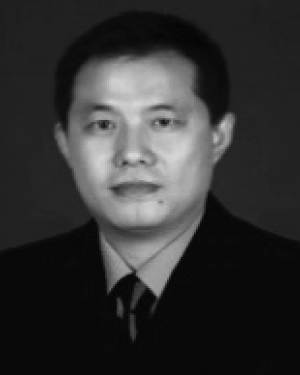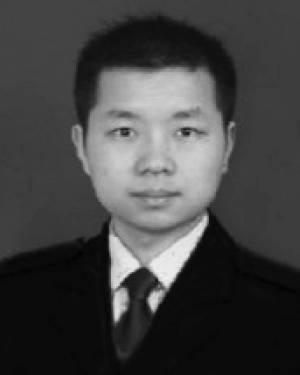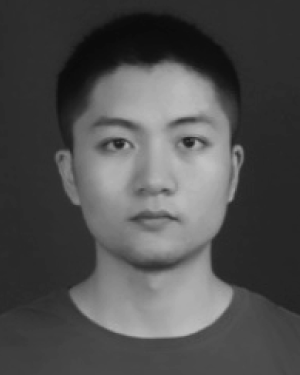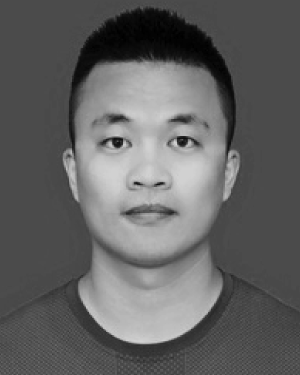We use structure-based representation and attribute-based representation to process entity information in relation triples and attribute information in attribute triples....
Abstract:
Most of the existing knowledge representation learning methods project the entities and relations represented by symbols in the knowledge graph into the low-dimensional v...Show MoreMetadata
Abstract:
Most of the existing knowledge representation learning methods project the entities and relations represented by symbols in the knowledge graph into the low-dimensional vector space from the perspective of the structure and semantics of triples, and express the complex relations between entities and relations with dense low-dimensional vectors. However, triples in the knowledge graph not only contain relation triples, but also contain a large number of attribute triples. Existing knowledge representation methods often confuse these two kinds of triples and pay little attention to the semantic information contained in attributes and attribute values. In this paper, a novel representation learning method which makes use of the attribute information of entities is proposed. Specifically, deep convolutional neural network model is used to encode attribute information of entities, and both attribute information and triple structure information are utilized to learn knowledge representation, and then generate attribute-based representation of entities. The knowledge graph completion task was used to evaluate this method, and the experimental results on open data sets FB15K and FB24k showed that the attribute-embodied knowledge representation learning model outperforms the other baselines.
We use structure-based representation and attribute-based representation to process entity information in relation triples and attribute information in attribute triples....
Published in: IEEE Access ( Volume: 8)
Funding Agency:

Command and Control Engineering College, Army Engineering University of PLA, Nanjing, China
The PLA Unit 73671, Lu’an, China
Zhongwei Zhang was born in Chuzhou, Anhui, China, in 1991. He received the B.E. degree from the PLA University of Information Engineering, in 2013. He is currently pursuing the master’s degree with the Army Engineering University. His research interests include knowledge graph completing and deep learning.
Zhongwei Zhang was born in Chuzhou, Anhui, China, in 1991. He received the B.E. degree from the PLA University of Information Engineering, in 2013. He is currently pursuing the master’s degree with the Army Engineering University. His research interests include knowledge graph completing and deep learning.View more

Command and Control Engineering College, Army Engineering University of PLA, Nanjing, China
Lei Cao received the B.S. degree from the China University of Science and Technology, in 1987, and the M.S. degree from the PLA University of Science and Technology, in 1990. He is currently a Professor with Army Engineering University. His research interests include machine learning, command information systems, and intelligent decision making.
Lei Cao received the B.S. degree from the China University of Science and Technology, in 1987, and the M.S. degree from the PLA University of Science and Technology, in 1990. He is currently a Professor with Army Engineering University. His research interests include machine learning, command information systems, and intelligent decision making.View more

Command and Control Engineering College, Army Engineering University of PLA, Nanjing, China
Xiliang Chen received the B.S., M.S., and Ph.D. degrees from the PLA University of Science and Technology, in 2007, 2009, and 2019, respectively. He is currently an Associate Professor with Army Engineering University. His research interests include reinforcement learning and intelligent decision making.
Xiliang Chen received the B.S., M.S., and Ph.D. degrees from the PLA University of Science and Technology, in 2007, 2009, and 2019, respectively. He is currently an Associate Professor with Army Engineering University. His research interests include reinforcement learning and intelligent decision making.View more

Command and Control Engineering College, Army Engineering University of PLA, Nanjing, China
Wei Tang received the M.S. degree in military communication from the PLA University of Science and Technology, in 2004. He is currently an Associate Professor with the Army Engineering University of PLA. His current research interests include reinforcement learning and inverse reinforcement learning.
Wei Tang received the M.S. degree in military communication from the PLA University of Science and Technology, in 2004. He is currently an Associate Professor with the Army Engineering University of PLA. His current research interests include reinforcement learning and inverse reinforcement learning.View more

Command and Control Engineering College, Army Engineering University of PLA, Nanjing, China
Zhixiong Xu received the B.E. and M.S. degrees from the PLA University of Science and Technology, in 2015 and 2018, respectively. He is currently pursuing the Ph.D. degree with Army Engineering University. His research interests include machine learning and intelligent decision making.
Zhixiong Xu received the B.E. and M.S. degrees from the PLA University of Science and Technology, in 2015 and 2018, respectively. He is currently pursuing the Ph.D. degree with Army Engineering University. His research interests include machine learning and intelligent decision making.View more

The PLA Unit 31121, Nanjing, China
Yangyang Meng received the B.E. degree from the PLA University of Science and Technology, in 2015. His research interests include machine learning and intelligent decision making.
Yangyang Meng received the B.E. degree from the PLA University of Science and Technology, in 2015. His research interests include machine learning and intelligent decision making.View more

Command and Control Engineering College, Army Engineering University of PLA, Nanjing, China
The PLA Unit 73671, Lu’an, China
Zhongwei Zhang was born in Chuzhou, Anhui, China, in 1991. He received the B.E. degree from the PLA University of Information Engineering, in 2013. He is currently pursuing the master’s degree with the Army Engineering University. His research interests include knowledge graph completing and deep learning.
Zhongwei Zhang was born in Chuzhou, Anhui, China, in 1991. He received the B.E. degree from the PLA University of Information Engineering, in 2013. He is currently pursuing the master’s degree with the Army Engineering University. His research interests include knowledge graph completing and deep learning.View more

Command and Control Engineering College, Army Engineering University of PLA, Nanjing, China
Lei Cao received the B.S. degree from the China University of Science and Technology, in 1987, and the M.S. degree from the PLA University of Science and Technology, in 1990. He is currently a Professor with Army Engineering University. His research interests include machine learning, command information systems, and intelligent decision making.
Lei Cao received the B.S. degree from the China University of Science and Technology, in 1987, and the M.S. degree from the PLA University of Science and Technology, in 1990. He is currently a Professor with Army Engineering University. His research interests include machine learning, command information systems, and intelligent decision making.View more

Command and Control Engineering College, Army Engineering University of PLA, Nanjing, China
Xiliang Chen received the B.S., M.S., and Ph.D. degrees from the PLA University of Science and Technology, in 2007, 2009, and 2019, respectively. He is currently an Associate Professor with Army Engineering University. His research interests include reinforcement learning and intelligent decision making.
Xiliang Chen received the B.S., M.S., and Ph.D. degrees from the PLA University of Science and Technology, in 2007, 2009, and 2019, respectively. He is currently an Associate Professor with Army Engineering University. His research interests include reinforcement learning and intelligent decision making.View more

Command and Control Engineering College, Army Engineering University of PLA, Nanjing, China
Wei Tang received the M.S. degree in military communication from the PLA University of Science and Technology, in 2004. He is currently an Associate Professor with the Army Engineering University of PLA. His current research interests include reinforcement learning and inverse reinforcement learning.
Wei Tang received the M.S. degree in military communication from the PLA University of Science and Technology, in 2004. He is currently an Associate Professor with the Army Engineering University of PLA. His current research interests include reinforcement learning and inverse reinforcement learning.View more

Command and Control Engineering College, Army Engineering University of PLA, Nanjing, China
Zhixiong Xu received the B.E. and M.S. degrees from the PLA University of Science and Technology, in 2015 and 2018, respectively. He is currently pursuing the Ph.D. degree with Army Engineering University. His research interests include machine learning and intelligent decision making.
Zhixiong Xu received the B.E. and M.S. degrees from the PLA University of Science and Technology, in 2015 and 2018, respectively. He is currently pursuing the Ph.D. degree with Army Engineering University. His research interests include machine learning and intelligent decision making.View more

The PLA Unit 31121, Nanjing, China
Yangyang Meng received the B.E. degree from the PLA University of Science and Technology, in 2015. His research interests include machine learning and intelligent decision making.
Yangyang Meng received the B.E. degree from the PLA University of Science and Technology, in 2015. His research interests include machine learning and intelligent decision making.View more

